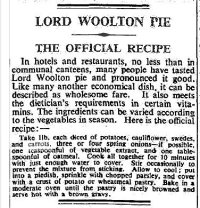Funky_monks
Neo-Rustic
From the earlier Guardian article - this seems reasonable:The problem here is that people are looking at the issue through the lense of fairness or morality. I couldn't give a damn even if every farmer was an obnoxious, top-hat wearing toff. The fact is that the country's food supply is an issue of national security. Absolutely every benefit and privilege should be granted to those that keep that supply up and running. To hell with fairness.
What are the alternatives?
In France, the only country in Europe with full food self-sufficiency meaning they do not have to rely on imports, farmers can access tax relief if they jump through administrative hoops to prove they work the land themselves.Guy Singh-Watson, an organic farmer and founder of Riverford Organic vegetable boxes, who broadly supports the government’s plan, said: “Land in the French Vendée – where I have owned a 120-hectare (300-acre) farm for the past 15 years – is less than a 10th of the price of equivalent land in Devon, where I also farm. To be a farmer there, you have to be deemed fit to farm by the local administration. I doubt whether many landowners simply buying up farmland would pass that test.” He suggested a similar policy could be put in place in the UK, with true farmers given tax benefits.






